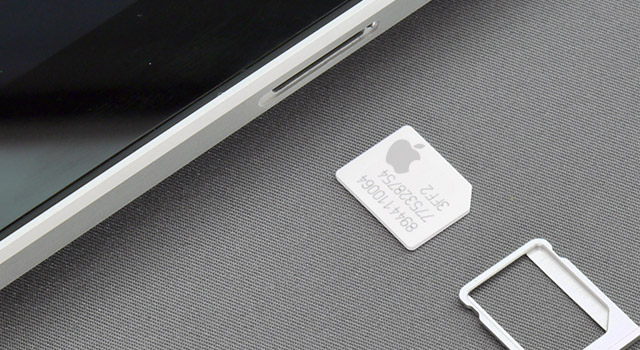
With the launch last week of the iPad Air 2, Apple quietly announced a new Sim product that looks set to have a profound impact on mobile telecommunications operators worldwide.
Apple’s reprogrammable Sim allows users to switch between data plans without the need to get a new Sim for each carrier. The technology should also make roaming more user friendly, giving consumers the option to subscribe to short-term data packages with a local service provider when travelling abroad — without removing the Sim from the device.
Apple has launched its new Sim card with select operators in the US and UK and will be available with the new iPad Air 2 and iPad mini 3 in those markets.
The move is a step closer for the company to have embedded Sim cards in its iPhone range, something Apple has been trying to push through for years.
 It is still unclear when the Sim technology will reach South African shores, but MTN’s GM for products and solutions, Mike Fairon, says the operator is already in talks with Apple about it.
It is still unclear when the Sim technology will reach South African shores, but MTN’s GM for products and solutions, Mike Fairon, says the operator is already in talks with Apple about it.
Vodacom says it is liaising with parent Vodafone on the matter. Vodafone says in a statement: “We are working with the wider industry and [industry association] the GSMA to develop global standards for such interoperable Sims and these are expected to be deployed in 2015.”
Apple has not yet announced if its new Sim card will be made available on the iPhone. If it is, it’s likely still a while off. iPad owners will use the Apple Sim for data only, so if the Sim’s phone number changes when they switch operators it won’t have much of an impact. For iPhone users, the Apple Sim will need to retain the user’s number, effectively porting the number to a new network operator when the user switches.
It is also uncertain at this stage what bearing South Africa’s Rica legislation might have on any plans to introduce the technology here. Rica requires telecoms operators to to obtain and retain certain information from their customers when they activate a new Sim card.
Apple’s move is likely to have a disruptive impact on the cellular industry, forcing network operators to lower data costs and loosen the knot that keeps users locked into long-term contracts.
There is also speculation that the technology behind the Apple Sim could also pave the way for the company to launch its own virtual mobile network using wholesale agreements with operators. — © 2014 NewsCentral Media

